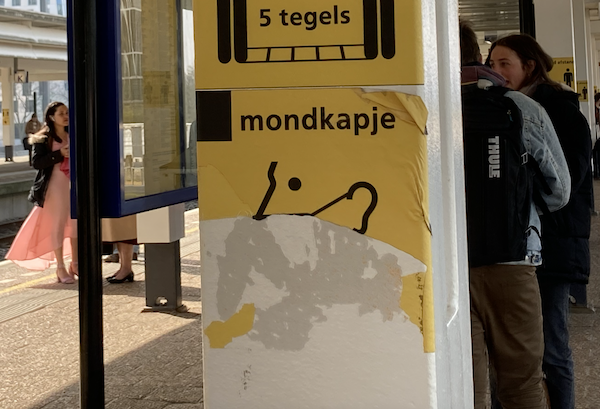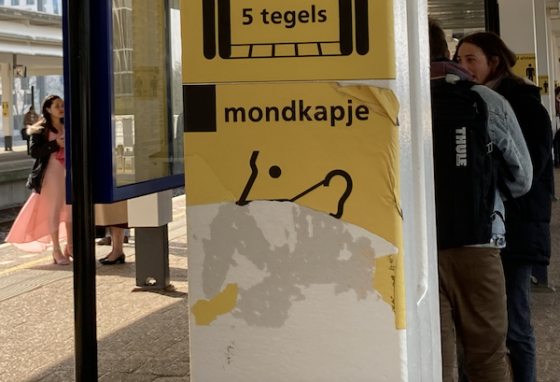Koolmees insists NS will improve in 2023 after ‘turbulent’ year


The new head of national train operator NS has promised the service will improve in 2023 after an autumn blighted by overcrowding, strikes and staff shortages.
Wouter Koolmees, formerly an MP and social affairs minister with the D66 party, said the service had been through ‘turbulent times’ as it emerged from the coronavirus lockdown to be confronted with severe shortages of drivers and conductors.
One of Koolmees’s first acts after starting work on November 1 was to implement a 9.25% pay deal that had been agreed with the main trade unions. It resolved a dispute that brought the network to a standstill in August and September as workers were called out on a series of one-day strikes.
Koolmees said the pay deal had allowed NS to recruit an extra 184 conductors and 240 train drivers since July. The staff shortage has forced the company to cut around 13% of services from its winter timetable, but Koolmees does not expect further restrictions.
‘In the autumn, especially in September, we often weren’t able to put trains with sufficient seating on the rails. We’re extremely disappointed about that,’ Koolmees told AD.
September is typically the busiest month of the year as commuters return from their summer holidays and a new intake of students begins travelling to universities and colleges.
The chance of finding a seat at peak hours dropped from 99.6% to 96.5% in 2022, but in September almost one in 10 commuters had to stand for part of the journey.
Delays and frustration
One in 12 passengers (8.3%) experienced a delay of at least five minutes. The problem was most acute on the high-speed line linking Amsterdam with Brussels via Rotterdam, mainly because the trains have had to cut their speed since October over the Rijpwetering viaduct near Leiden.
In the autumn more than 180 trains were known to be too short to allow everyone to have a seat, but this number has been halved in October in November.
Koolmees acknowledged that the frustration felt by commuters was real, but pointed out that passenger numbers are still around 20% lower than before the pandemic.
‘We are having to run 13% fewer trains out of necessity,’ he said. ‘That’s not great, but it means we can run a more stable and dependable service. Since October and November trains have been longer and the number of busy trains is quite a bit lower.
‘People forget that the coronavirus restrictions only ended in March. And just as all our efforts were focused on winning back those lost passengers, there were suddenly enormous staff shortages.
‘Not all the passengers have returned, it’s still only 80%. And people are travelling far more on Tuesdays and Thursdays, while Fridays are much quieter. It’s a challenge for us at NS.’
Thank you for donating to DutchNews.nl.
We could not provide the Dutch News service, and keep it free of charge, without the generous support of our readers. Your donations allow us to report on issues you tell us matter, and provide you with a summary of the most important Dutch news each day.
Make a donation